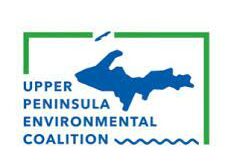The 2018 SAE Clean Snowmobile Challenge is underway and continues through Saturday.
 Teams left the Keweenaw Research Center Tuesday morning just after 10:00 as they made their way to Copper Harbor and back for the event’s gasoline endurance run.
Teams left the Keweenaw Research Center Tuesday morning just after 10:00 as they made their way to Copper Harbor and back for the event’s gasoline endurance run.
The quest for cleaner running and quieter sleds originated 19 years ago in the midst of a controversy at Yellowstone National Park in Wyoming.
Environmentalist argued that the noise pollution and exhaust emissions produced by snowmobiles threatened the wildlife habitat, and the National Park Service considered banning snowmobiling in the park all together.
 President of the Blue Ribbon Coalition Jack Welch said, “During the time of the beginning of the Clean Snowmobile Challenge, the concerns in Yellowstone Park were around sound and emissions, which are two issues that the Clean Snowmobile Challenge is addressing.”
President of the Blue Ribbon Coalition Jack Welch said, “During the time of the beginning of the Clean Snowmobile Challenge, the concerns in Yellowstone Park were around sound and emissions, which are two issues that the Clean Snowmobile Challenge is addressing.”
Welch is an advocate of snowmobiling and his organization worked with the park to reach a happy medium.
At that time the park was visited by over 1,400 snowmobiles per day. Since then, restrictions have been put in place only allowing 318 sleds to enter the park each day.
In addition, only newer machines that meet the sound and emissions requirements are permitted.
 In 2003, the SAE Clean Snowmobile Challenge began here in the Keweenaw and engineering students from across North America come every year to take part.
In 2003, the SAE Clean Snowmobile Challenge began here in the Keweenaw and engineering students from across North America come every year to take part.
Students start with a stock production model sled donated by manufacturers. Then they strip it down and start over, fabricating their own parts to meet each year’s competition requirements.
“It’s been exciting to see some of the innovations and I’m also interested in the use of diesel technology for utility snowmobiles that can do a lot of things that a conventional snowmobile couldn’t do,” said Welch.
The teams believe that diesel powered sleds will be used as commercial utility vehicles, possibly for law enforcement, or rescue and recovery missions.
An obvious solution for both minimal sound and zero emissions is an electric snowmobile, but the electric category has been removed from this year’s competition, giving students the opportunity to focus on internal combustion powered sleds as they are more practical for everyday use.
While other teams hit the trail to Copper Harbor, students from the Rochester Institute of Technology had to make some last minute adjustments and will have to wait until tomorrow to showcase their snow machine.
 “We had clutching issues yesterday. We were getting up to 43 miles per hour, we need to get up to 45, so you know just a little thing there but we switched out our clutching weights and we have no problem now. So tomorrow morning they’ll take it out. If they can get it above 45 and we pass, we’re good to go for the rest of the week. We can compete in everything other than the endurance ride,” said, Jeffrey Phelps, a student of RIT.
“We had clutching issues yesterday. We were getting up to 43 miles per hour, we need to get up to 45, so you know just a little thing there but we switched out our clutching weights and we have no problem now. So tomorrow morning they’ll take it out. If they can get it above 45 and we pass, we’re good to go for the rest of the week. We can compete in everything other than the endurance ride,” said, Jeffrey Phelps, a student of RIT.
Machines will be on public display tomorrow from 6 – 8 pm at the Keweenaw Research Center main building near the Houghton County Memorial Airport with competitive events taking place throughout the week and the awards banquet scheduled for Saturday at the Bonfire Grill in Houghton.
“I’m really an enthusiast and it’s always great to see innovation to keep our sport viable. So it’s really great to be part of the challenge and to be involved in for last 19 years,” said Welch.
Here is a detailed schedule of the week’s events.
 Keweenaw Report Your Source for Local News and Sports
Keweenaw Report Your Source for Local News and Sports






